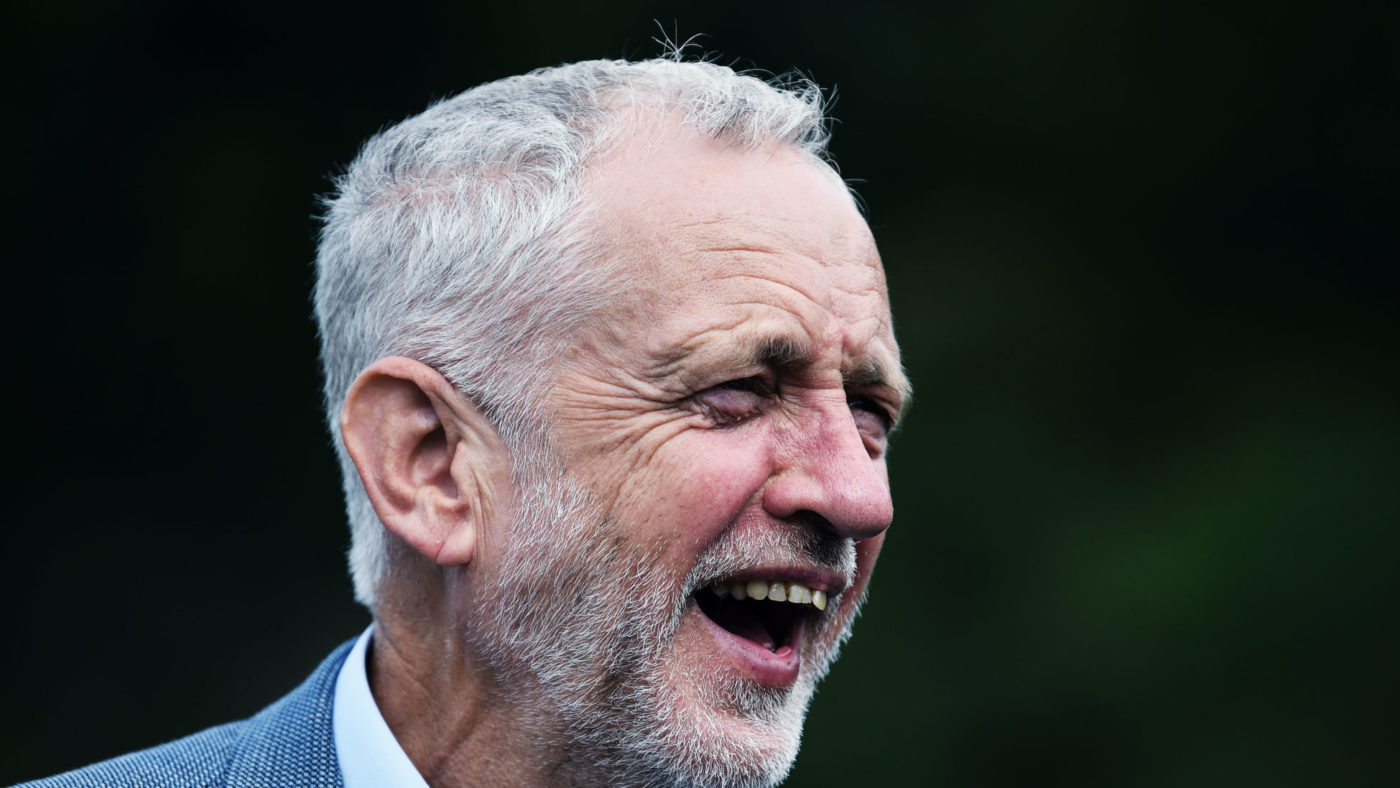Labour is in a crisis of its own making. A plainly anti-Semitic comment by Jeremy Corbyn from 2013 resurfaced last week. The party’s new-found hostility (it is not too strong a word) to Jews today prompted Frank Field, the veteran MP for Birkenhead, to resign the Labour whip.
Yet Mr Corbyn’s insinuation that Zionists are not truly British is only one item in a very long roster of absurd and inflammatory comments made when he was an obscure backbencher and that now demand attention. Here’s another dismal example.
Nato is a voluntary alliance founded on the principle of collective security. It was created in 1949 to counter the aggressive threat of Soviet Communism, which under Stalin’s tyranny had subjugated Eastern European nations and was seeking to subvert the rest of the continent.
Yet according to Mr Corbyn, addressing a protest rally in Wales in 2014, Nato was “set up to promote a Cold War with the Soviet Union”. Footage of this speech, made just a year before Mr Corbyn became Labour leader, has resurfaced.
It’s a commonplace that his knowledge of diplomatic history could be fully transcribed on the back of a postage stamp, but this particular eccentricity goes beyond mere ignorance.
It is a calumny on Eastern European nations whose independence Stalin destroyed after the Second World War. And it is a declaration of unyielding hostility to the Labour Party, which bears immense historical credit for the very idea of Nato.
When Labour won a landslide election victory in 1945, its leaders believed they were well placed to cultivate good relations with the Soviet Union. In practice, they speedily reassessed this judgment. The government of Clement Attlee allied with the United States in the emerging Cold War.
Labour’s historically vital role in the creation of the postwar transatlantic alliance was based entirely on the evidence of Soviet conduct. Stalin’s regime was ideologically hostile to liberal democracy. Labour, as a party of constitutional politics, had no option but to oppose it.
Britain was a partisan in the Cold War but not in the sense of being unwillingly dragged along by US imperialism. On the contrary, there was a strong risk that the wartime alliance between Britain and the US would disintegrate. American policymakers were far from uniformly supportive of Britain, which (according to Congressman Emmanuel Cellar) had “too damned much Socialism at home and too much damned Imperialism abroad”. Weariness with war prompted a strong current of opinion in the US that Europe now needed to look after itself.
Ernest Bevin, Attlee’s foreign secretary, was crucial in persuading the US to commit itself to the defence of Western Europe. Nato was his brainchild more than anyone’s. It was conceived as a defensive alliance, responding to Soviet designs. Stalin’s hostile intentions were demonstrated by, among much else, the Communist putsch in Czechoslovakia in 1948 and the Soviet blockade of Berlin from 1948 to 1949. Britain’s security has, ever since, been anchored in Nato.
As an alliance founded on consent rather than coercion, Nato’s internal cohesion has often been tested. Soviet deployment of new intermediate-range missiles in the 1970s was countered by Nato’s decision to deploy Cruise and Pershing missiles in Western Europe. Some social democratic parties in the early 1980s – including Labour – mistakenly saw Nato’s decision as provocative and anti-nuclear campaigners even claimed that Cruise and Pershing were part of a strategy to fight a “limited” nuclear war in Europe. (They were actually intended to stress that no such possibility existed, and thus reinforce deterrence of Soviet nuclear blackmail.) Not even at that time, however, did Labour repudiate its own history of support for Nato.
That was then. Mr Corbyn holds to views on foreign policy that did exist within the Parliamentary Labour Party under Attlee’s leadership, but Attlee rooted these people out. A Labour MP called Konni Zilliacus was such a shameless Soviet apologist that he defended the Prague coup. Zilliacus’s unabashed support for totalitarianism brought a withering response from George Orwell, who wrote that “in spite of all the fashionable chatter of the moment, everyone knows in his heart that we should choose America. The great mass of people in this country would, I believe, make this choice almost instinctively”.
Zilliacus was expelled from Labour membership (though unfortunately was later readmitted). Another MP who was expelled was John Platts-Mills QC. When this scoundrel died in 2001, at the age of 95, a Guardian obituary coyly noted: “After the [Second World] war, he was unable to concede that our main ally had to be the United States, and that Stalin should be in disgrace.”
It is hard to credit that the party of Attlee and Bevin (and of Denis Healey, then international secretary of the Labour Party) has given way to the party of Jeremy Corbyn. It’s also a betrayal of Labour’s ethos, values and internationalism.


